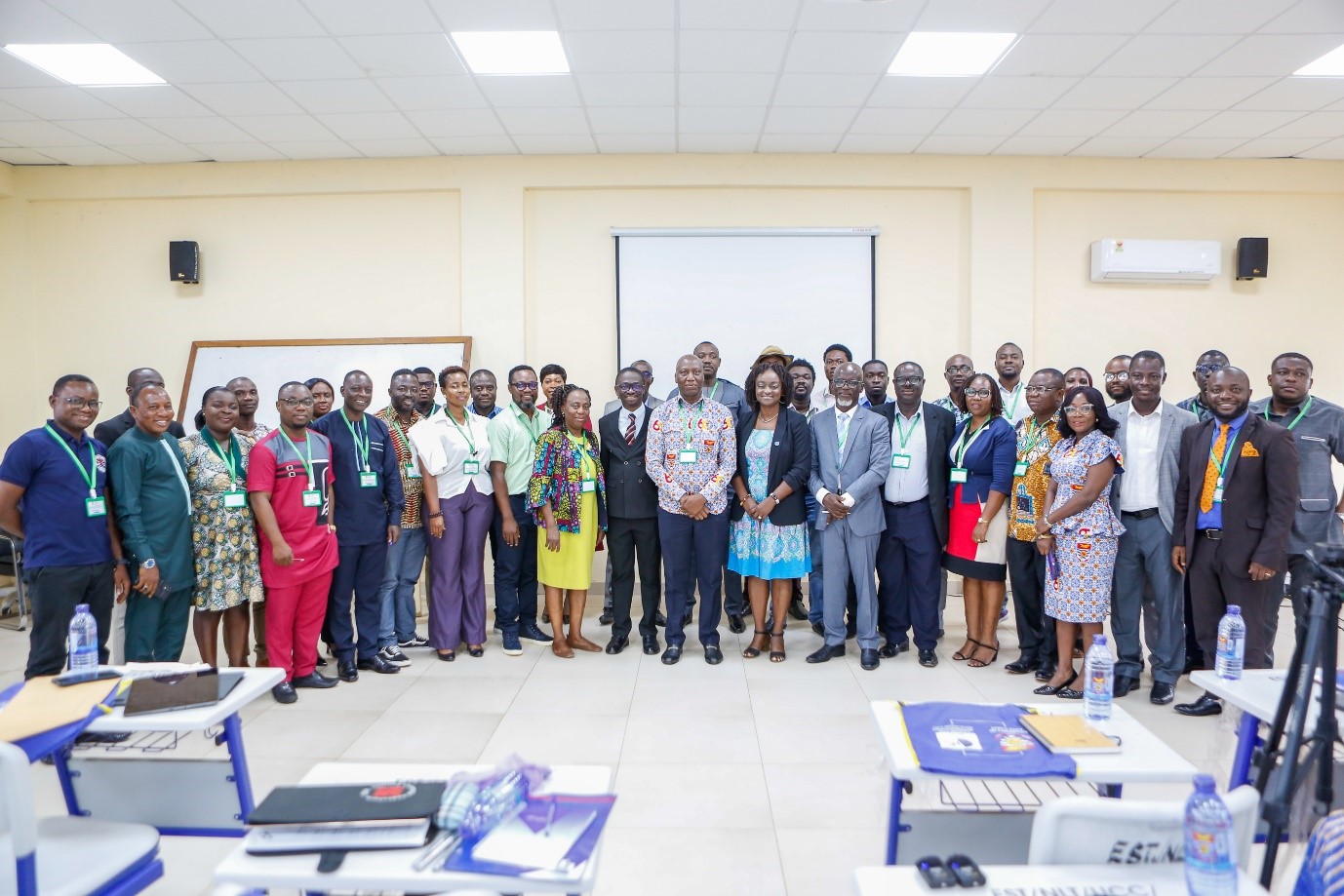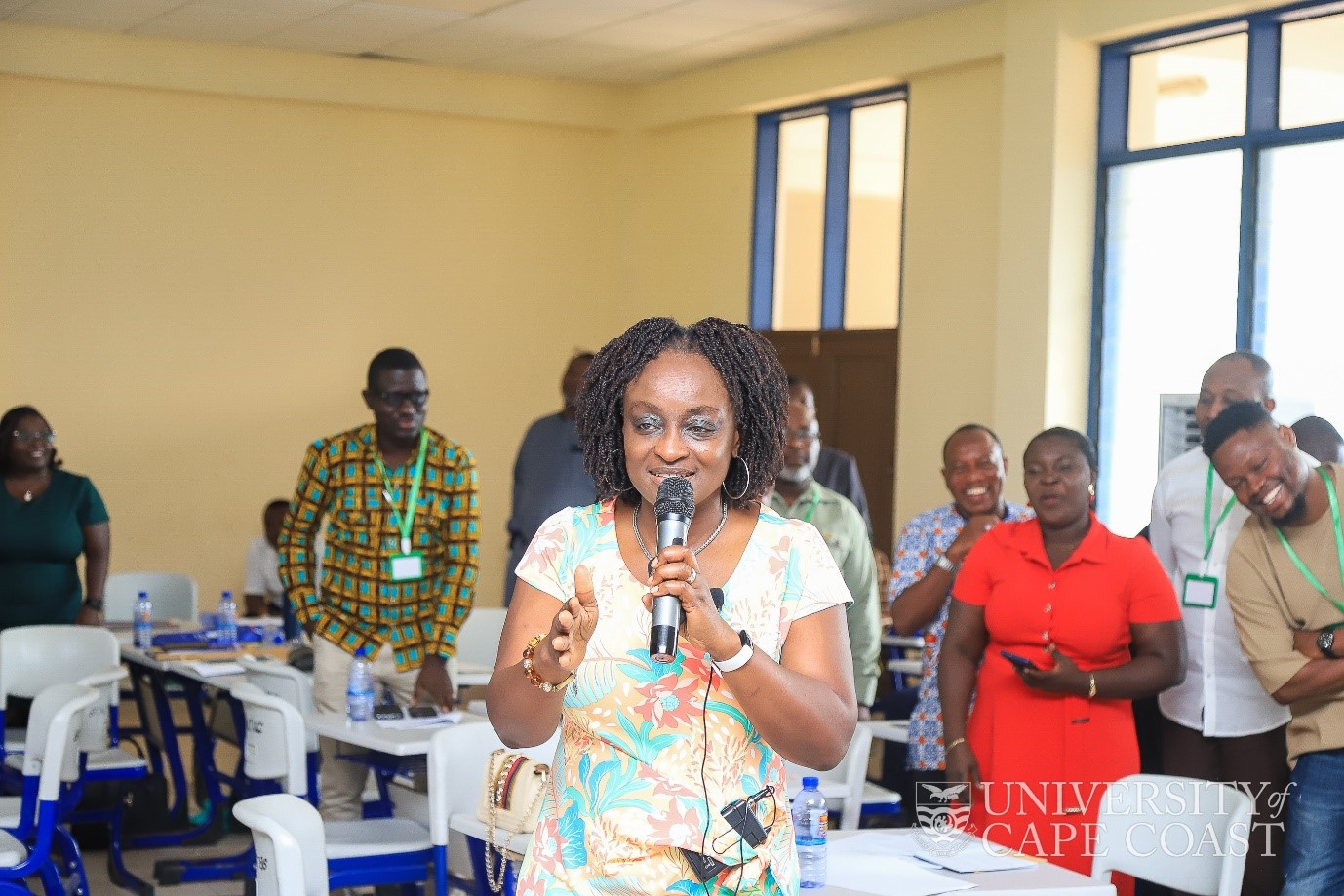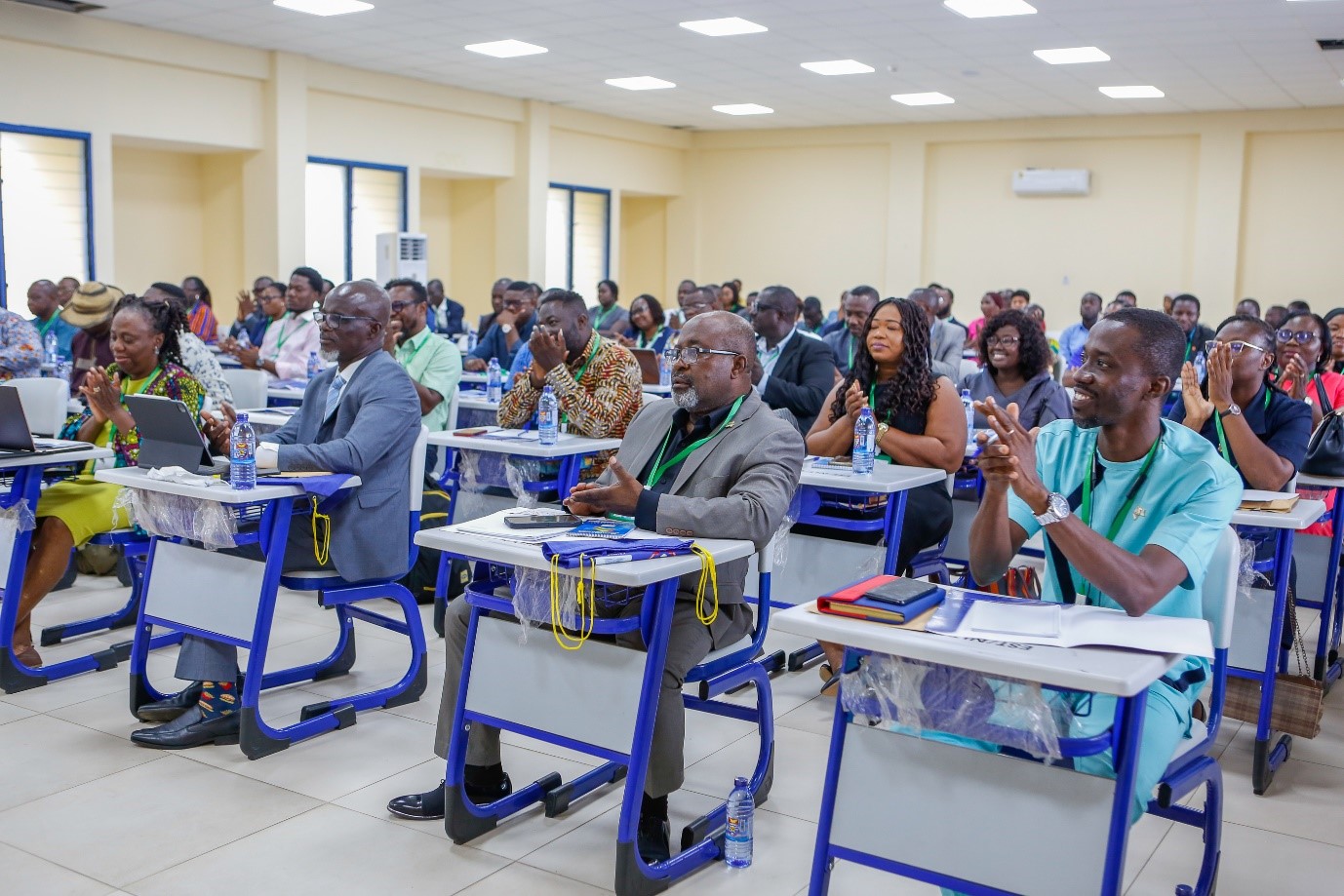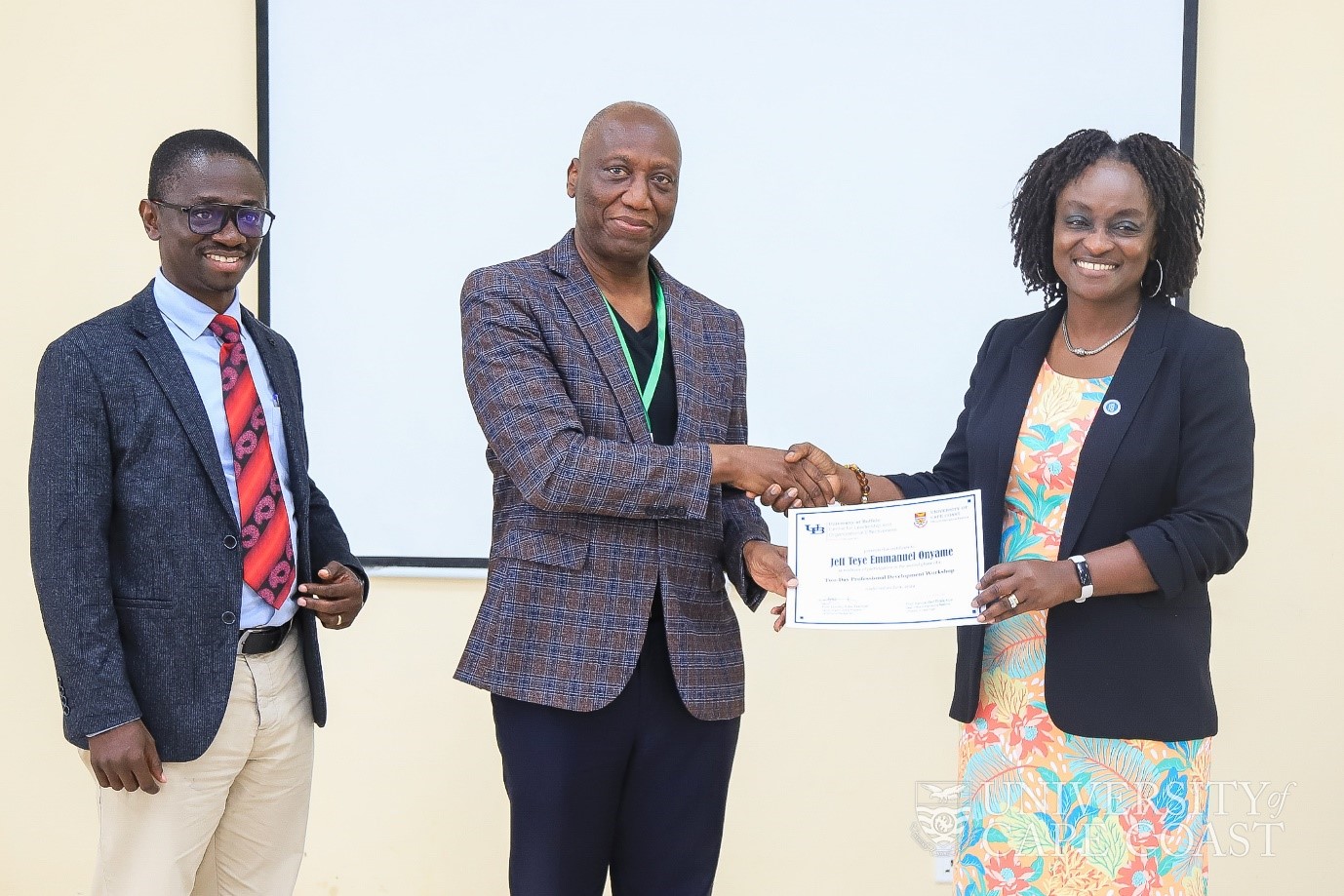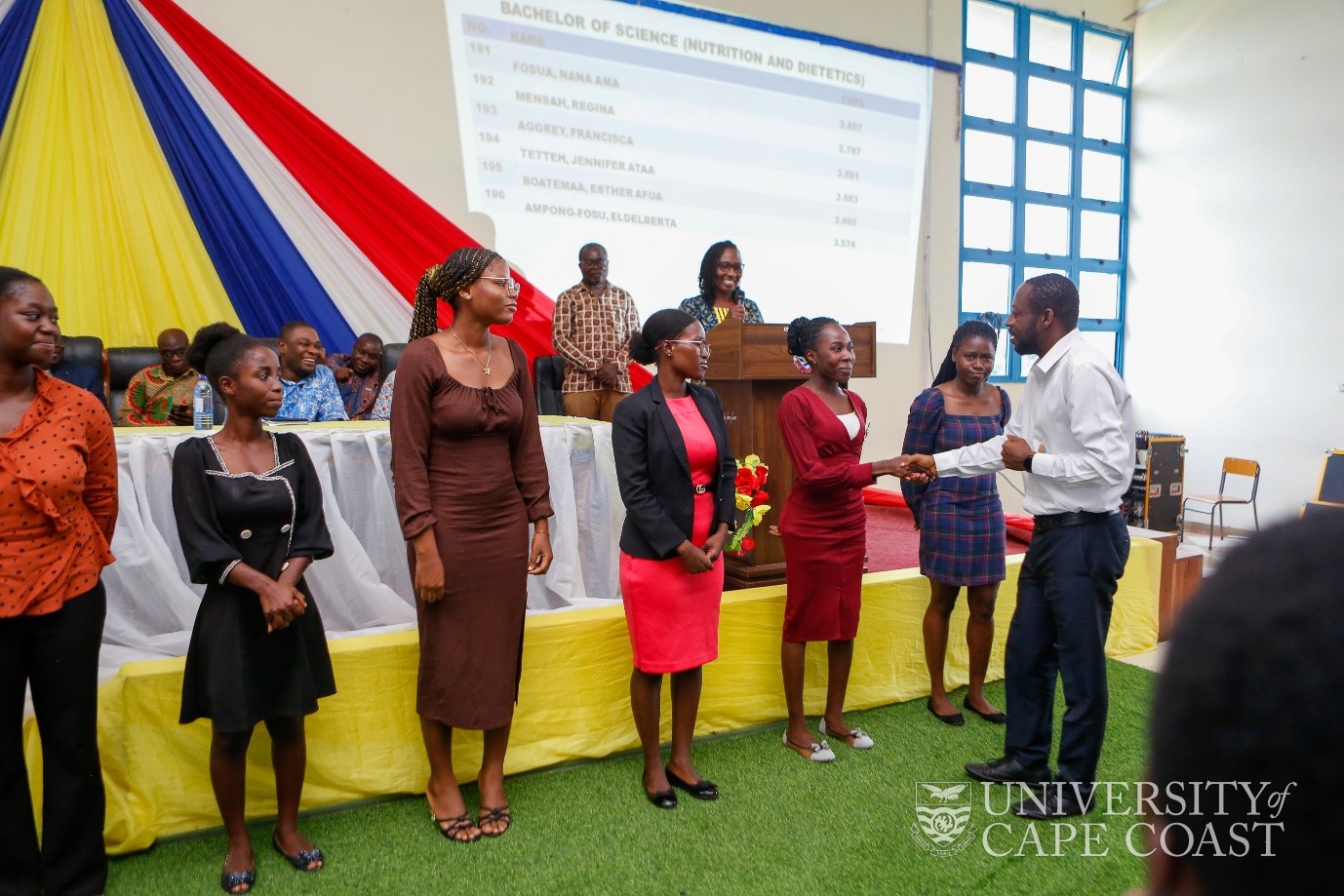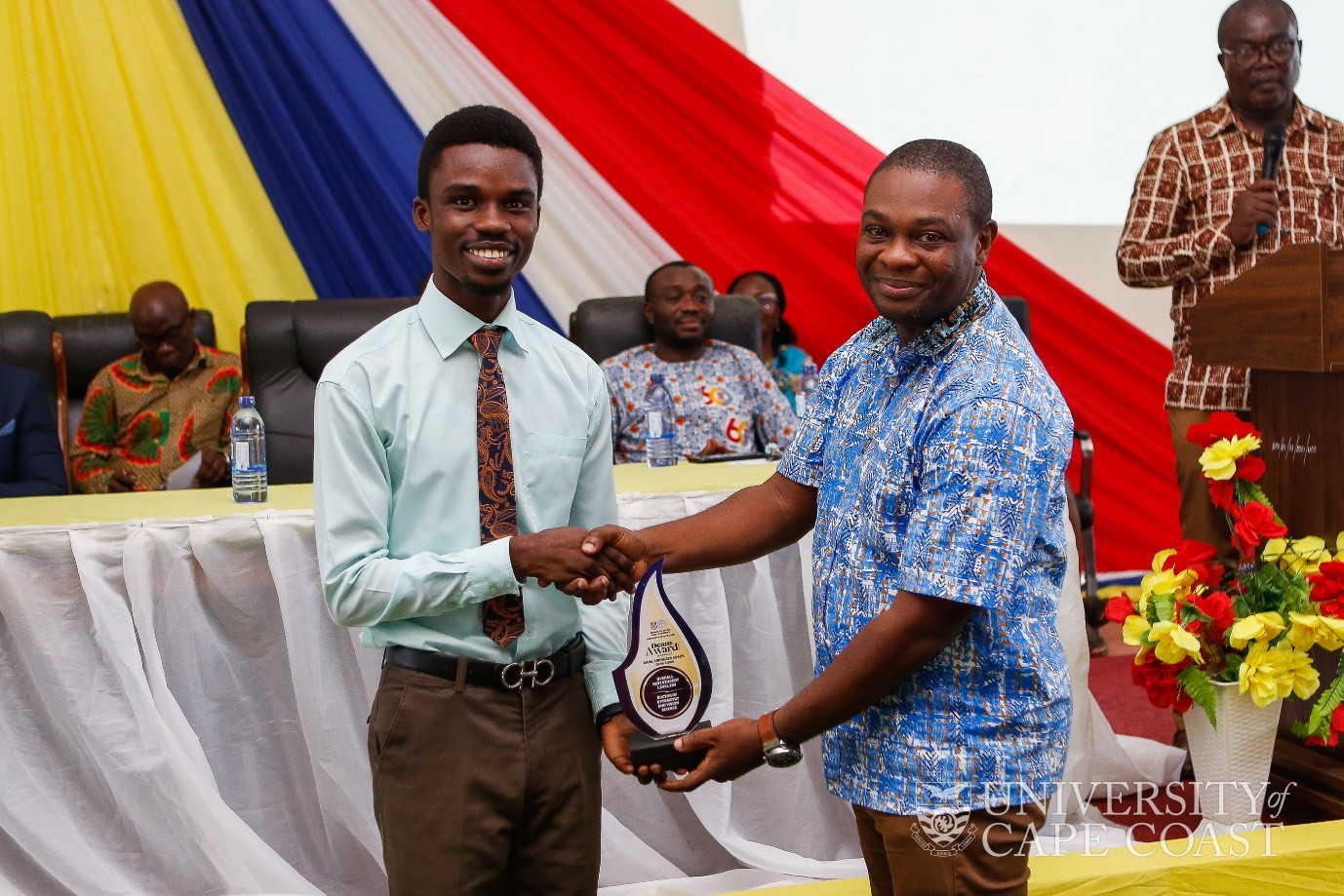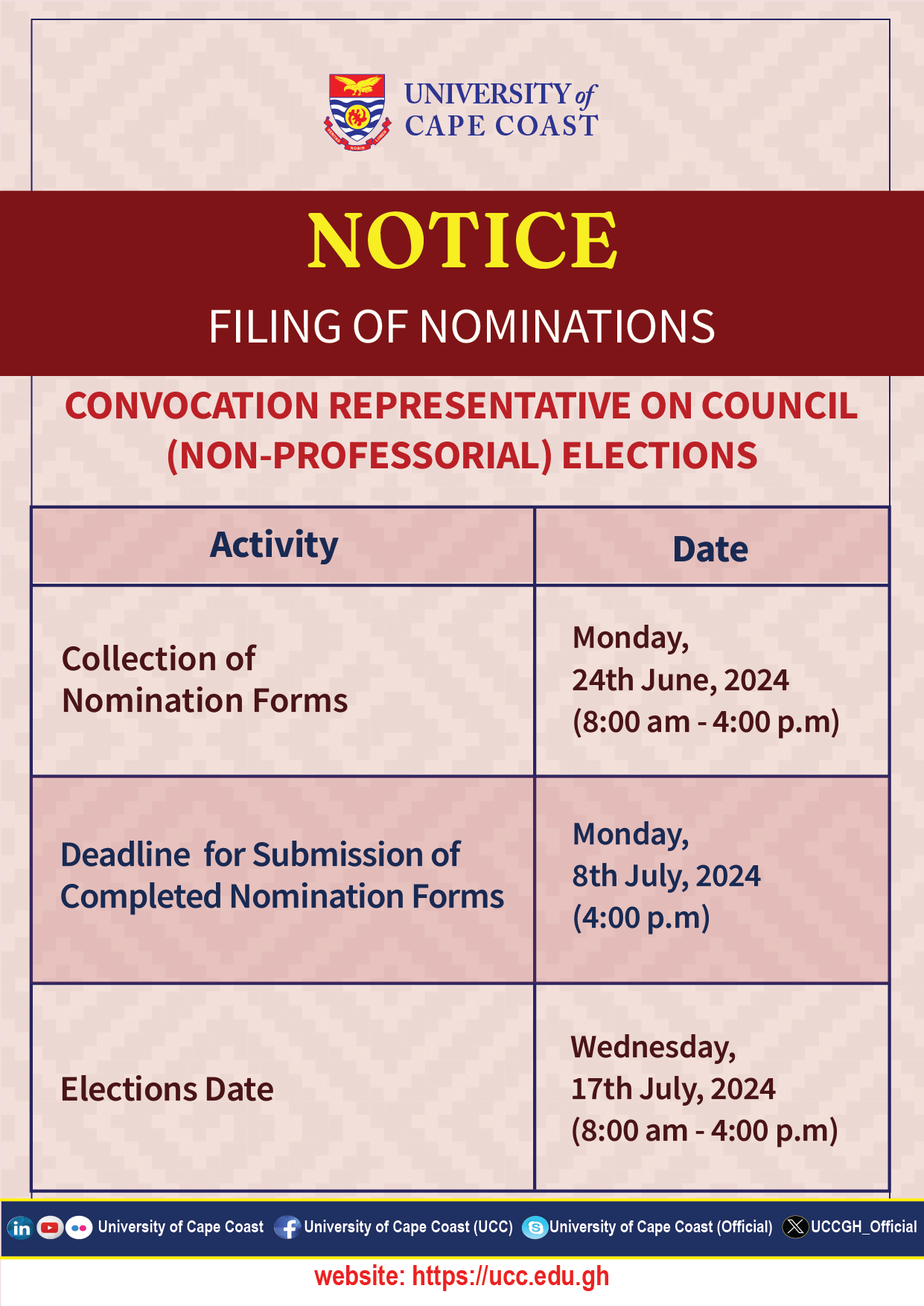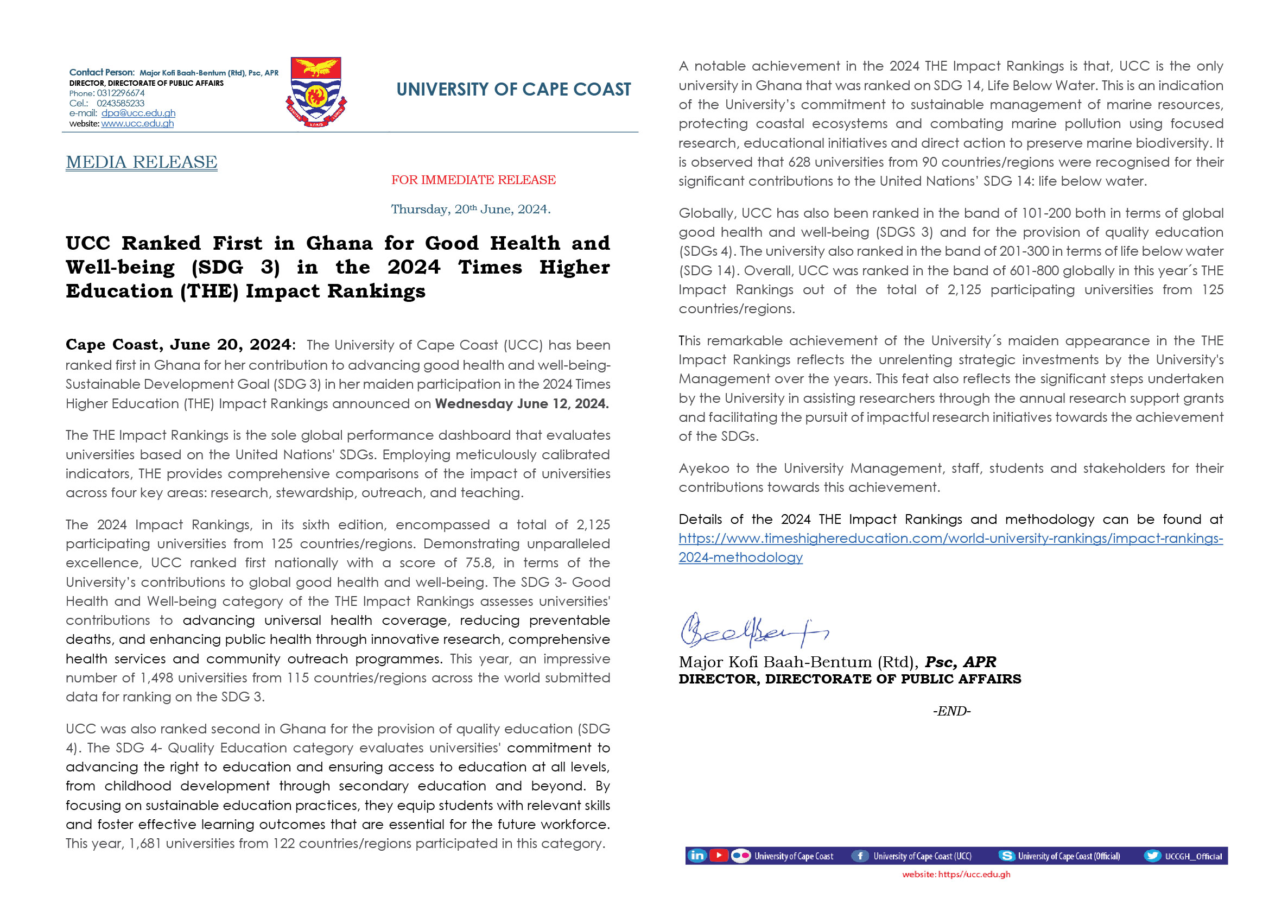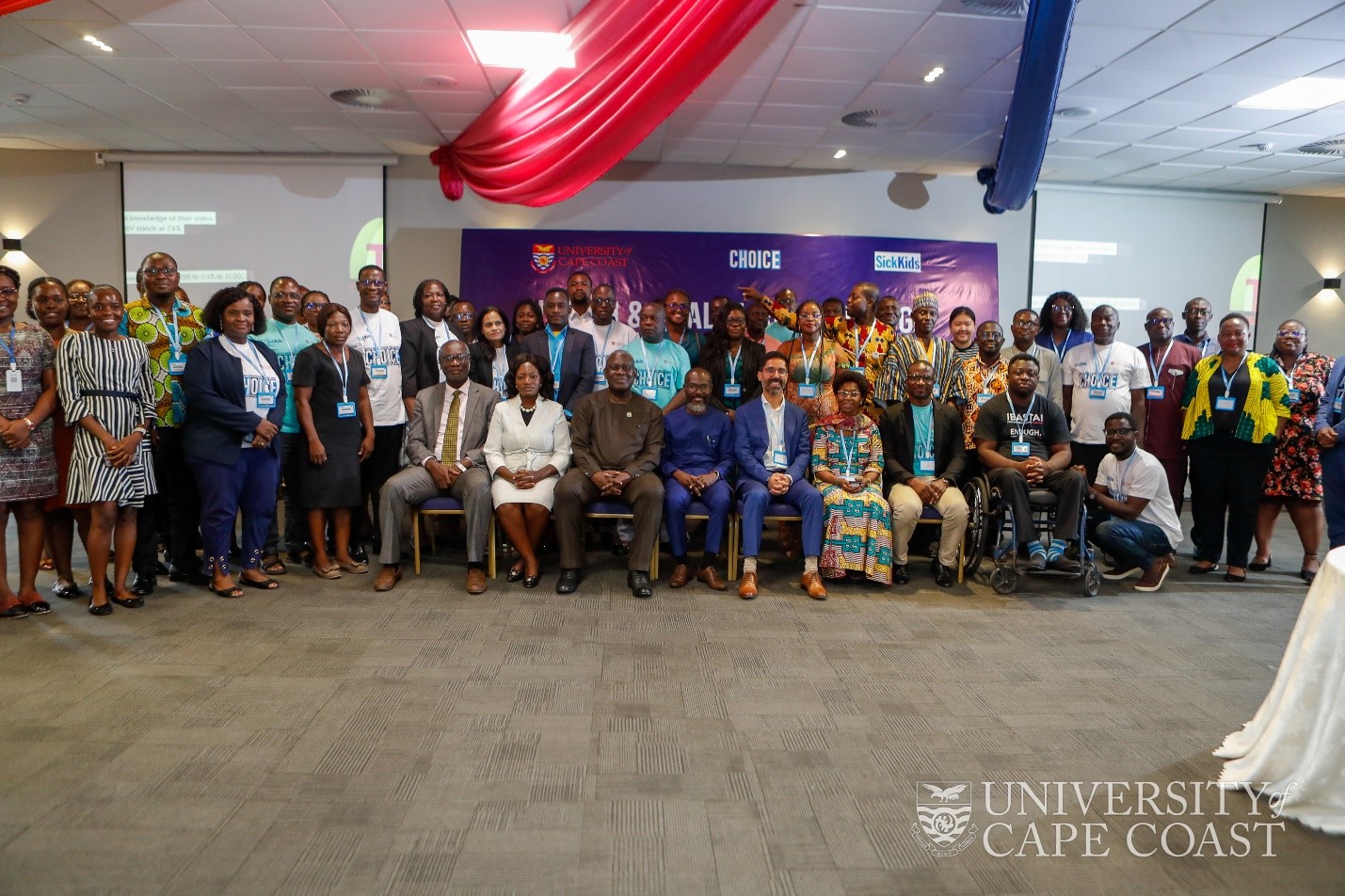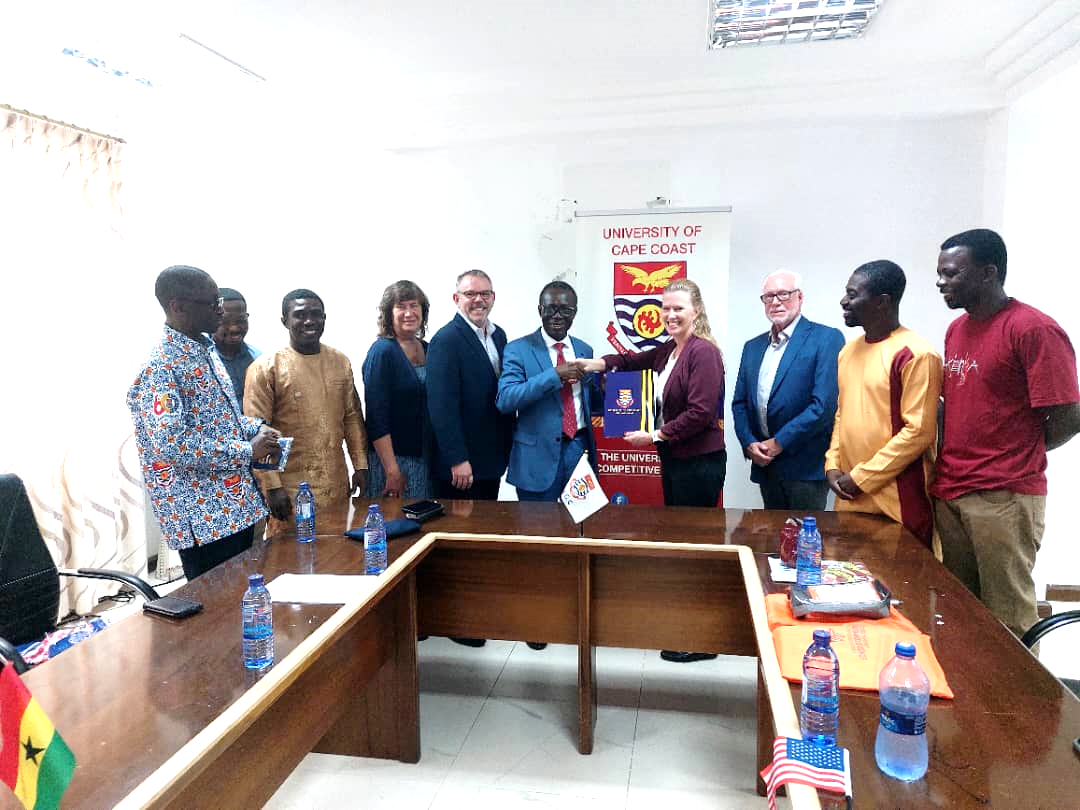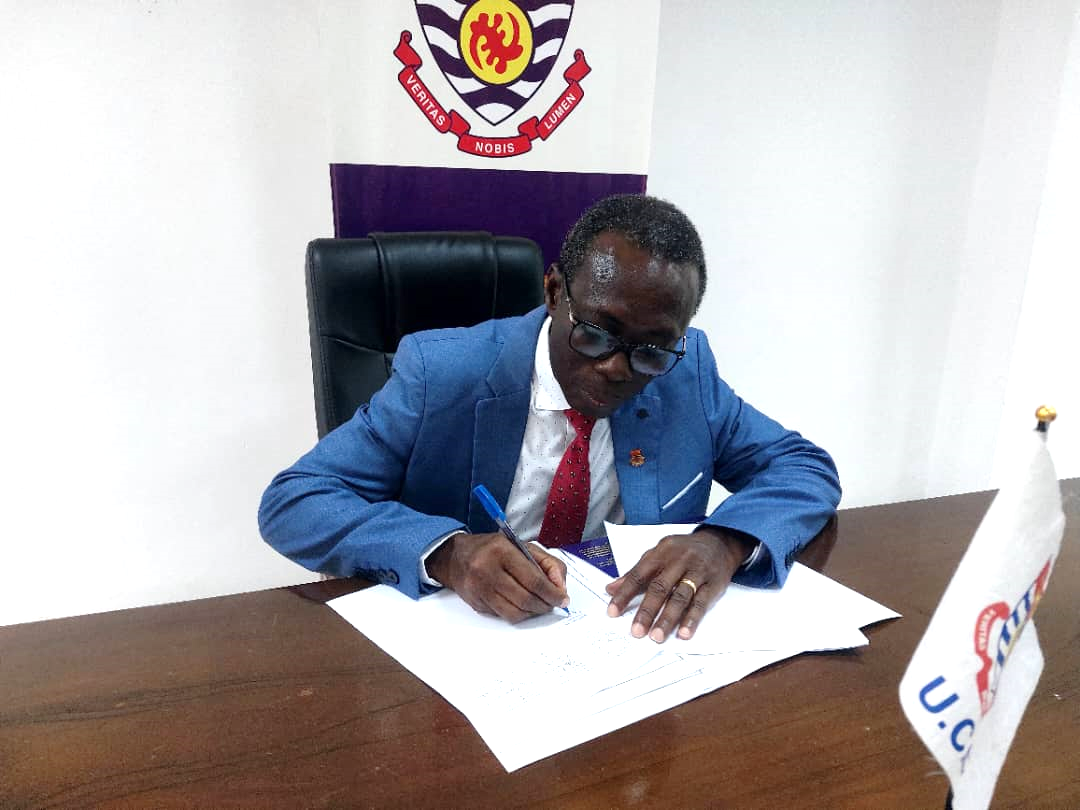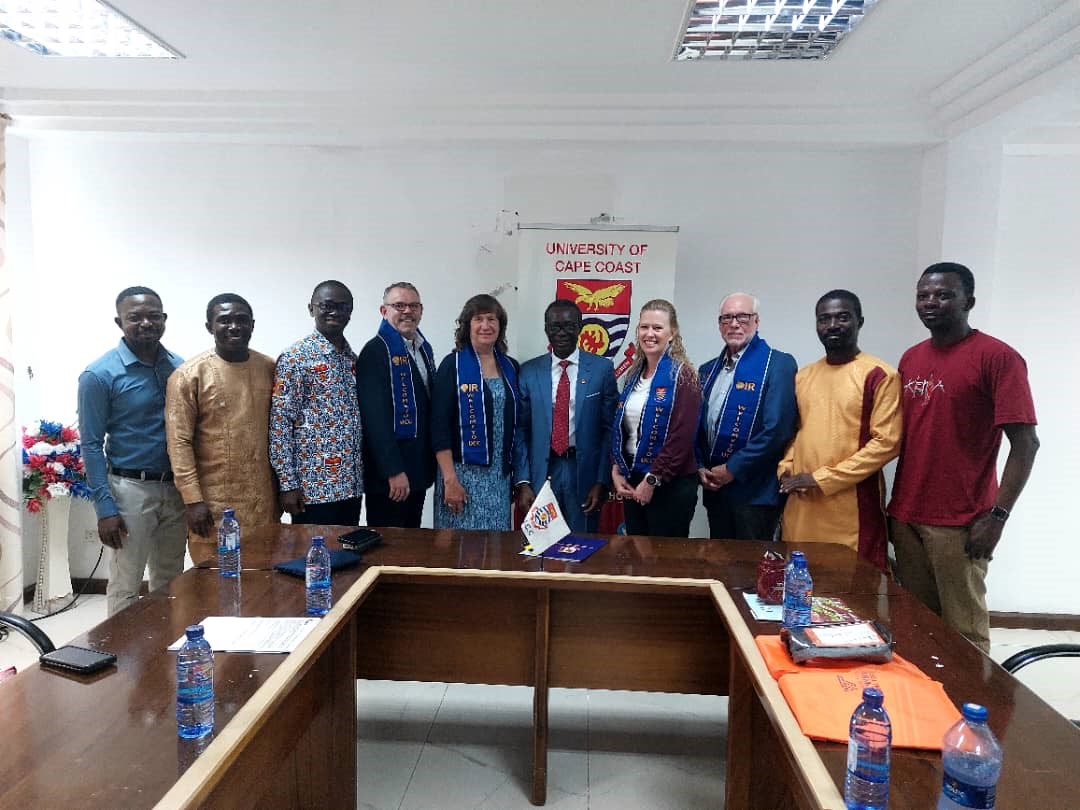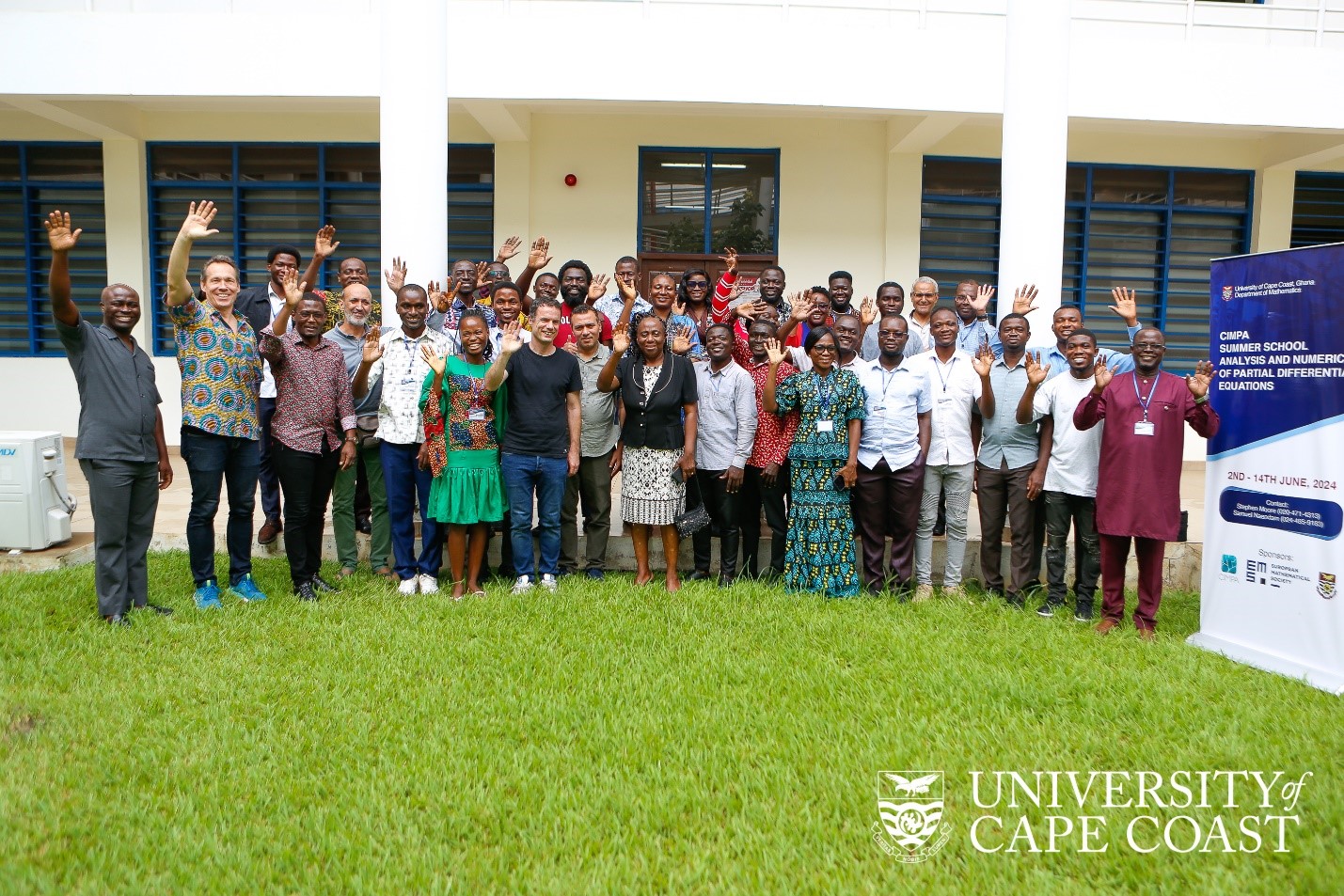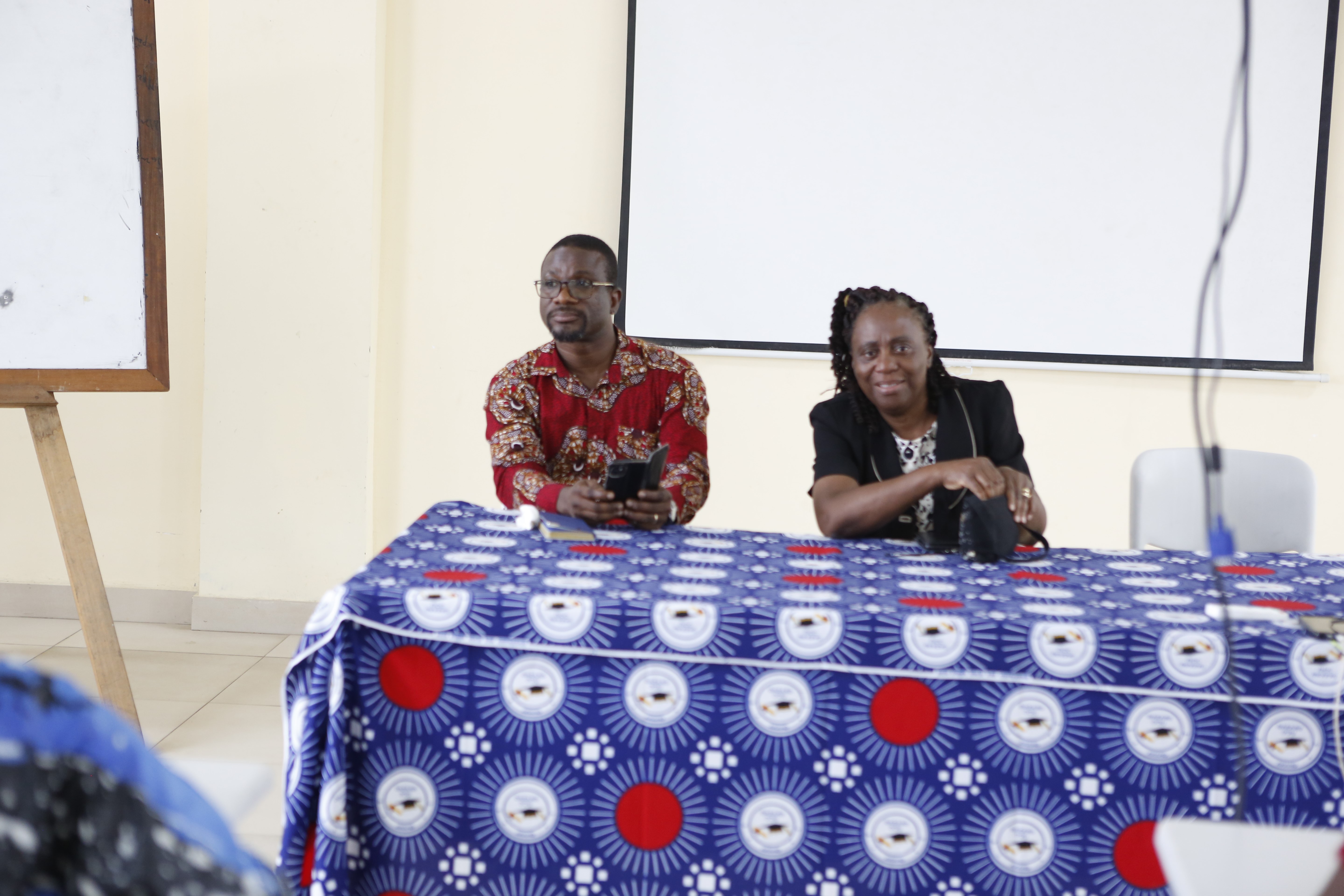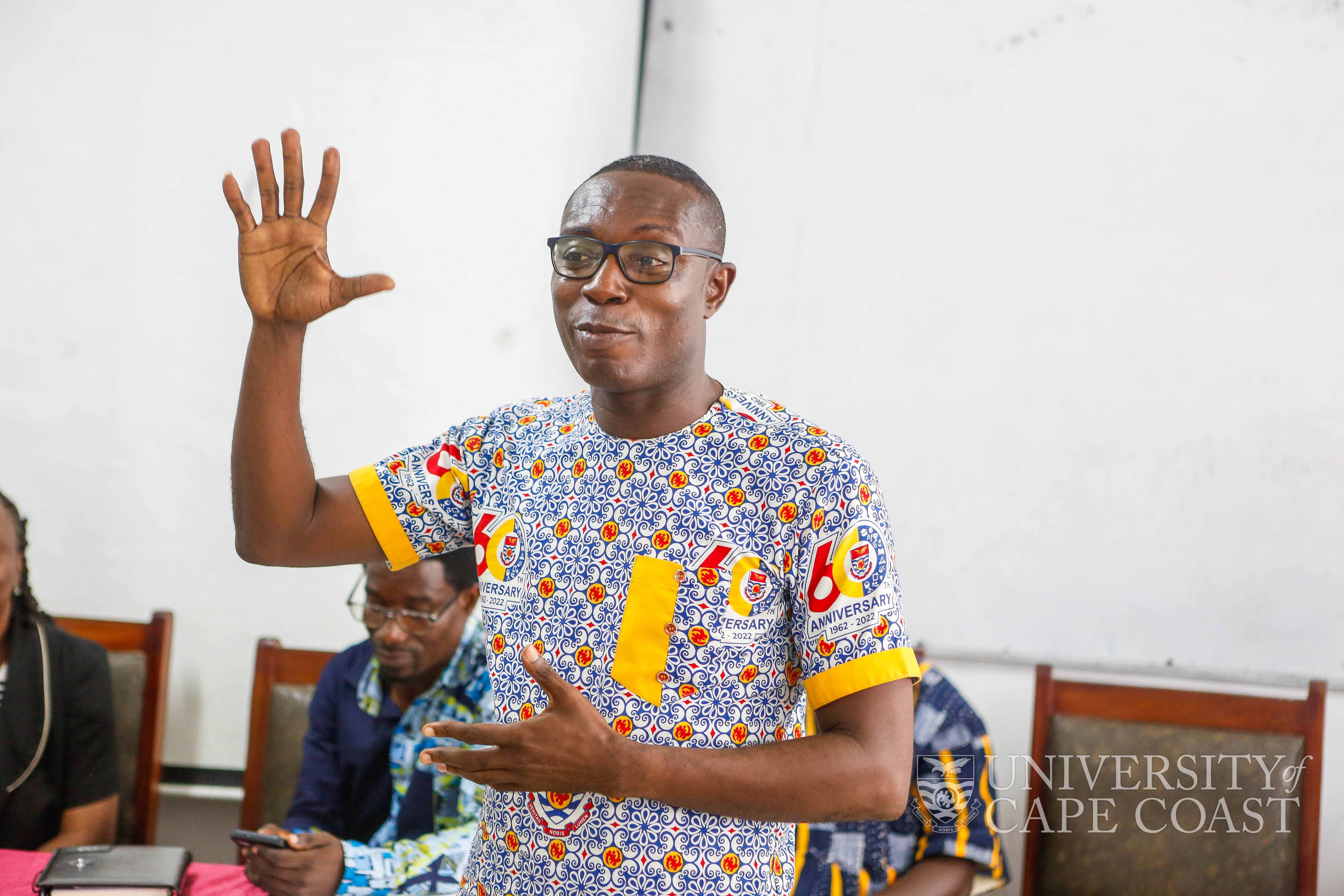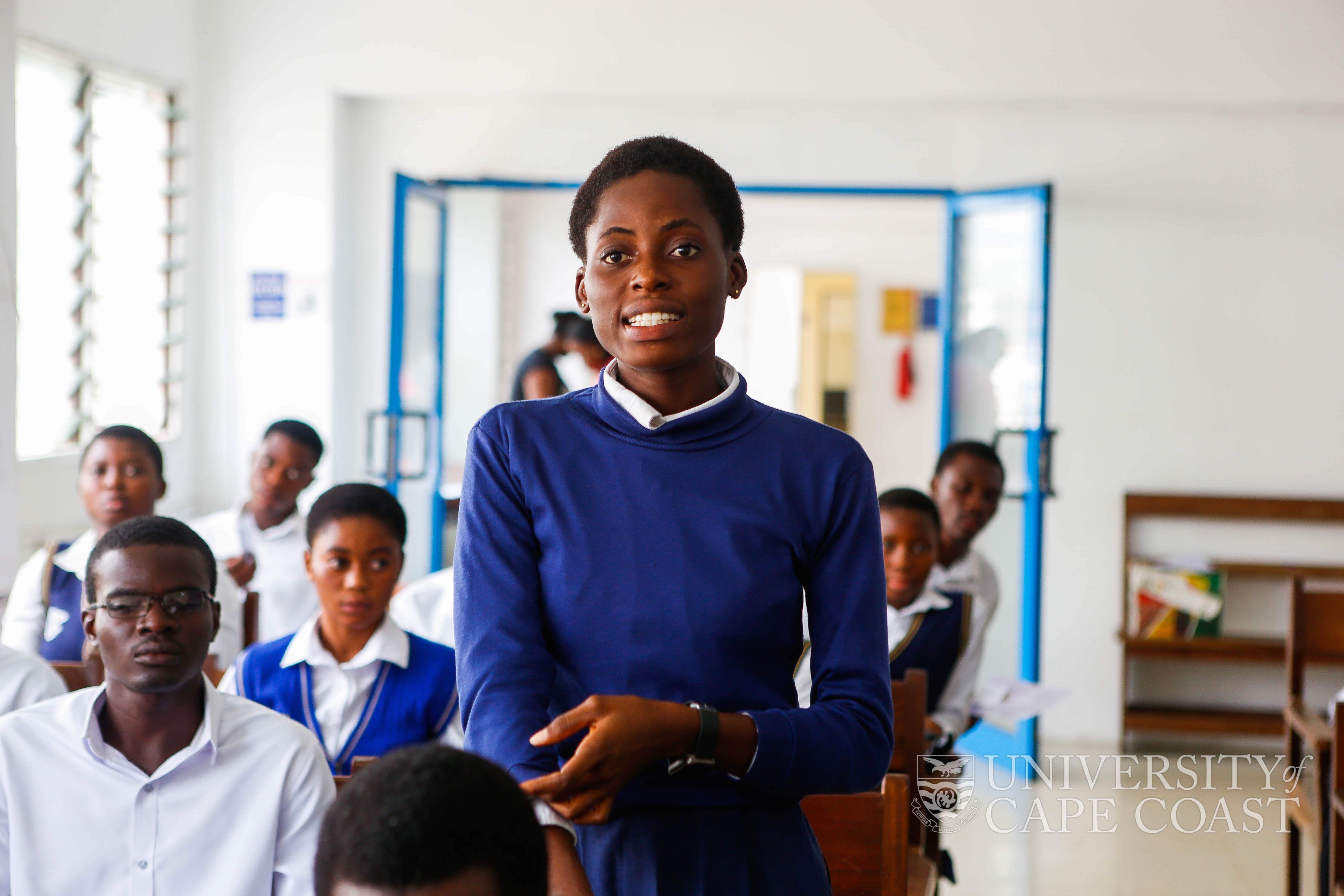A two-day training workshop for emerging leaders and administrators on Emotional Intelligence (EQ) in leadership has been held at the University of Cape Coast (UCC).
The training, facilitated by the Office of International Relations (OIR-UCC), was aimed at helping participants develop their emotional intelligence to manage their work lives.
The workshop was on the theme, "Emotional Intelligence in Leadership: Developing Skills to Understand and Manage Emotions in the Workplace."
Participants were drawn from the various directorates, colleges, faculties, schools, departments, sections, and units of the University.
Dr. Dorothy Siaw-Asamoah taking participants through an activity during the training
Addressing participants, an associate Professor of the University of Buffalo, USA, Dr. Dorothy Siaw-Asamoah, who was the instructor for the training, said EQ was the most sought-after attitude in the workplace because it created the enabling environment for an effective working relationship.
She indicated it was important for administrators to build their EQ to help in their leadership skills. She further said it was paramount for leaders to show empathy in discharging their duties to foster togetherness.
Dr. Siaw-Asamoah also urged participants to develop and sharpen their soft skills since they had become more relevant and critical in the new world of work.
Outlining some qualities crucial to the role leaders play, Dr. Siaw-Asamoah said they should be time-conscious, on-the-spot problem solvers, and emotionally intelligent to set them above their peers in achieving their set targets and goals.
A section of participants in the workshop
Explaining the difference between a fixed mindset and a growth mindset, she urged the participants to adopt a growth mindset which enhances creativity, innovation and accommodation.
“The world doesn’t revolve around you. Instead of indulging in a fixed mindset, embrace a growth mindset. When your workers are performing creditably at work, don’t be jealous (fixed mindset) instead, inspire them (growth mindset).”
The Registrar of UCC, Mr. Jeff Teye Emmanuel Onyame, in a remark, commended the participants for their willingness to participate in the training and encouraged them to continue practicing what they had learned to enhance their performance in discharging their duties.
Dr. Siaw-Asamoah (right) presenting a certificate to the Registrar of UCC. Looking on is the Dean of OIR-UCC, Prof. Bert Boadi-Kusi
The Dean of the OIR-UCC, Prof. Samuel Bert Kusi-Boadi, in a remark, charged the participants to take the knowledge gained seriously as it was not only an investment in their future but also the progress of their office and the University as a whole.
The workshop, he said, had been meticulously designed to sharpen their expertise and to empower them with the tools and insights necessary to operate more efficiently in their various areas of operation.
Participants were presented with certificates at the end of the training.
Source: Documentation and Information Section-UCC

